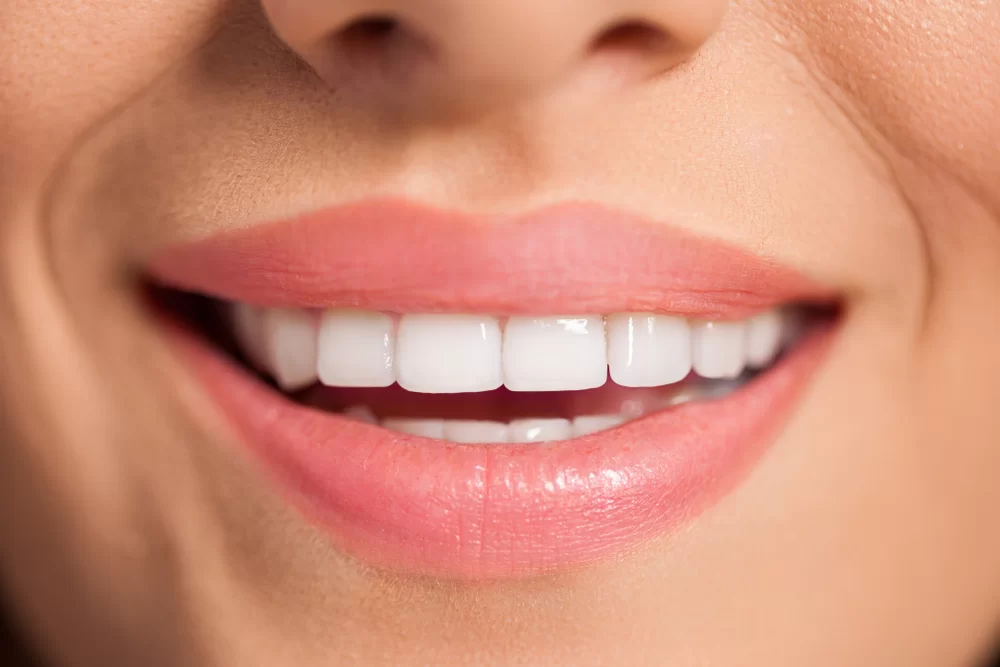Teeth Whitening

What is Teeth Whitening?
Teeth whitening is a process that removes colored organic and inorganic substances that accumulate in the porous enamel and dentin structure of teeth using whitening gels such as carbamide peroxide. This procedure is performed by a dentist to eliminate discoloration in the enamel and restore the natural whiteness of the teeth.
When is Teeth Whitening Used?
Teeth whitening is applied when teeth are discolored due to internal or external factors. It is an effective way to restore teeth to their natural color without damaging the surface.
How is Teeth Whitening Applied?
Teeth whitening involves applying peroxide-based whitening gels directly to the teeth using a brush or a thin strip. This treatment is typically performed once or twice daily for 10 to 14 days. It can lighten the teeth by one or two shades. The whitening methods vary depending on the technique and application area.
The different methods are as follows:
- Home Teeth Whitening: In this method, a custom whitening tray is prepared based on an impression taken from the patient’s mouth. A specific amount of whitening gel (containing 10-15% carbamide peroxide or hydrogen peroxide) is applied to the tray. The tray is worn for 4-6 hours daily for about 10-15 days or overnight for 8-10 days.
- In-Office Teeth Whitening (Clinical Whitening): Also known as laser teeth whitening, this procedure is performed in a clinical setting by a dentist. The application time is shorter than other methods. The whitening gel applied to the teeth is activated using UV light or a laser, and the procedure takes approximately one hour.
- Combined Teeth Whitening (Home + In-Office Whitening): In this method, whitening is applied both at home and in a clinical setting. After the in-office procedure, home whitening is continued for 2-3 days to enhance the results.
- Single-Tooth Whitening (Internal Whitening): This method is used for teeth that have discolored after root canal treatment. The filling is removed, whitening gel is applied to the cavity, and the tooth is temporarily sealed. The procedure is repeated every three days until the desired shade is achieved.
Frequently Asked Questions
Teeth whitening removes stains and yellowing from the surface of the teeth. Professional whitening is typically performed at a dental clinic using laser or gel-based methods, while at-home alternatives include whitening trays or toothpaste.
Teeth whitening is not permanent, but its effects usually last between 6 months to 2 years. Avoiding stain-causing foods and drinks like cigarettes, coffee, tea, and red wine, along with regular dental care, can help maintain the results longer.
Professional teeth whitening procedures are generally safe and do not damage tooth enamel. However, excessive or improper use can cause tooth sensitivity. It is recommended to undergo whitening treatments under the supervision of a dentist to ensure safety and effectiveness.